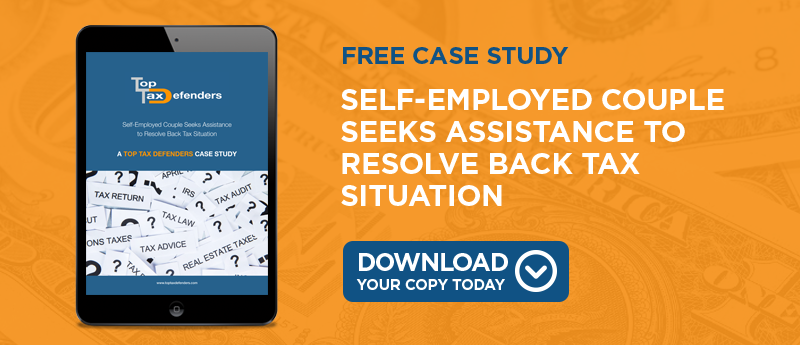.jpeg?width=2000&name=get%20irs%20tax%20penalties%20and%20interest%20waived%20(1).jpeg)
Because it is a major government agency, many people assume that the IRS wields a substantial amount of power over their taxable earnings and assets. However, as essential as this organization is to the collection of taxes for the government, it actually must obey the laws that Congress enacts regarding taxation. Even so, many people who owe back taxes to the IRS often want to know if they can get the penalties and interest waived on the delinquent amount in full. They can benefit by knowing under what circumstances that the IRS can waive penalties and interests and when they must pay the full amount and fees for any back taxes that they owe.
Conditions for Waiving Interest and Fees
Paying a tax debt in full does not typically merit total forgiveness of the penalties and interests associated with a defaulted tax account. In fact, the IRS has limited powers when it comes to forgiving these kinds of fees when a person owes taxes on assets like self-employment income, estates, lottery or casino winnings, dividends and other forms of unearned income.
However, in some cases, it may be able to waive penalties and interests on earned income if people can meet certain criteria. For example, someone who was living abroad during the tax year and did not know about changes to the tax law may be excused from failing to estimate his or her taxable assets. This person would need to provide proof that he or she was living overseas and had no access to the new tax law information.
Delinquent Taxes and Certain Circumstances
Likewise, the IRS may forgive taxpayers who are experiencing circumstances beyond their control. For example, people may have their penalties and interest waived if they are undergoing circumstances like:
- The death of a spouse or close family member
- A relocation due to a natural disaster
- Recent retirement
- Being aged 62 or older
- Getting bad tax advice in writing
- Living at or below the poverty line for family size
If they can meet one of these criteria and can substantiate with sufficient documentation like a police report, paycheck stubs, death certificate, or other paperwork, people could request that the penalties and interest on their tax obligation be waived.
Interestingly, people who use third-party tax preparation services often believe that they are protected from tax defaults or mistakes on their returns. However, many of these tax services only offer audit advice in addition to basic return preparation services. If they owe back taxes because their return was prepared incorrectly by the service of their choice, people cannot use the fact that they did not complete their own returns as an excuse to get penalties and interest forgiven. Likewise, their tax preparation service often will refuse to help them pay off this amount.
Alternatives to Requesting Waver of Interest and Penalties
When their chances of getting the extra penalties and interest waived is slim, people often wonder what they should do if they cannot pay the total amount in one payment. In fact, the IRS offers a couple of solutions to help them meet this obligation. Delinquent taxpayers can request a compromise, which could help people who are experiencing financial difficulties, but do not meet the guidelines for poverty. A compromise will allow them to pay a smaller amount in exchange for settling the obligation entirely.
If they are not eligible or interested in a compromise, people could also request to be set up on an installment payment plan. This payment plan works much like paying off a credit card or loan. People tell the IRS what they can afford to pay each month and on what date the payment can be made. They can then follow through with the plan until the debt is settled.
The IRS takes on the essential duty of collecting taxes for the government. Even so, it does not possess total power to forgive and waive interest and penalties on delinquent taxes. Many situations are judged individually to determine if they meet certain criteria to waive these amounts. People who want to request that their tax debts be relieved in this manner should know the circumstances that apply for having penalties and interest waived on back taxes.




